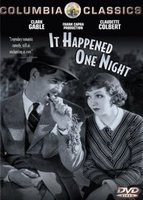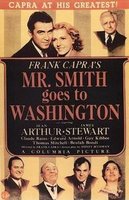In our last episode Bob finally got on the bus. Now the bus has arrived.It was a rainy Thursday morning and I was puttering around the office, too nervous to do any real work. I was sure that I wouldn’t hear from Bob before the lunch hour. I even called Greyhound to check the progress of the bus that I thought Bob was on. I thought I had plenty of time.
So I had stepped away from the office when the call came. Several hours before I expected it.
I didn’t call back. I left immediately for the subway.
The Clinton stop on the CTA Blue Line is only a block away from the Greyhound terminal. Sure a cab would have been faster – but it was raining. You can’t get a cab in the Chicago Loop when it’s raining. The trains don’t run so well either, even underground, which is something I’ll never understand. It just happens to be true.
Just that morning Long Suffering Spouse asked me if I’d even recognize my brother; after all, I’d not seen him since shortly after my father’s funeral, nearly five years ago, when he took a truck full of things – now gone, all gone – back to Texas. Maybe I saw him once in between, at Betty’s house. Maybe.
But I needn’t have worried. I recognized Bob immediately.
He looked like my father – when my father was in the last stages of his last illness. Granted, no one will look their best after a 20 hour bus ride, but Bob was rail thin – cadaverous – eyes sunken, slouching, pasty complected. His hair was longish, perhaps intended to disguise his receding hairline and maybe calling more attention to it.
But Bob’s hair was still brown. What remains of mine is thoroughly gray.
I was remarking on this later, to Long Suffering Spouse, when Younger Daughter happened into the room. “I’m sure his hair is still dark because he has no daughters,” I said – provoking the immediate and expected reaction from Younger Daughter.
We could have walked to Haymarket, I suppose, but the skies were still threatening and Bob was carrying a large red, Marlboro-brand duffel and a weathered Samsonite briefcase. I was carrying my umbrella and a file folder full of papers to review. So a cab seemed like a good idea. And – thankfully – cabs were waiting in front of the Greyhound station.
The sign over the door of the old warehouse building at Sangamon and Washington Streets says
McDermott Center. The place is named for the late
Monsignor Ignatius D. McDermott. We went inside, up a few steps, through another set of glass doors. There was a chapel on our left; the security desk was straight ahead. We signed into Central Intake, received ID badges, and were directed up a stairway to the second floor. We were promptly intercepted and directed to a waiting room. Bob was told to leave his stuff in the hall; later it was also moved into the waiting room.
The waiting room is set up with three or four rows of plastic chairs facing a television set. A desk is at the entrance to the room, perpendicular to the chairs. On this desk is a sign-in book. Bob signed in. In what I later learned to be a breach of protocol, I did not. As a prospective client Bob was immediately ushered to the washroom to make a “drop.” As a visitor, I was exempted from this welcoming ceremony.
There were people everywhere. Staff people. Cleaning people. Clients. The waiting room was crowded. Next door to the waiting room was a ‘smoking room’ – but no more than three people were allowed in at a time. Which was important since the room was about the size of a closet. A small closet. The man working the desk when we came in wanted to know when our appointment was.
It is said that no battle plan survives contact with the enemy. None of my plans seem to survive contact with reality. The man with whom I’d spoken a couple of days before had given me bad information: Unless we came in through detox – where the police bring drunks picked up on the street – we were supposed to have an appointment. The waiting room attendant left to find someone for us to talk to; another took his place.
An admissions counselor was found; I told her why we were there and why we’d made no appointment. She said she’d try and fit Bob in – and she did. But it took awhile. A long while. In the meantime, I kept one eye on the stuff I brought, and watched Michael Keaton’s
Clean and Sober with the other. At lunchtime the clients are offered the opportunity to have a meal. Bob didn’t want to go. So I stayed with Bob. People came, people went. Some were clearly being admitted. Some were just there for prearranged appointments. Everyone, so far as I could see – including Bob and me – were treated courteously and with respect. There was a degree of jocularity with those familiar to the staff, but everything seemed appropriate. Even – strange to say in the circumstances, I realize –
nice.
Bob wasn’t talkative. Bob wasn’t much of anything. He sat there, reading a book he’d brought on the bus and occasionally watching the movie. We didn’t have a lot to talk about anyway.
Eventually, in the middle of the afternoon, Bob got to see an assessor and I got a chance to return to my office, eat my lunch and return the many phone calls that had accumulated in my absence. I negotiated the settlement of the case that I was talking about at the outset of this cycle during this brief interlude. And none of these calls would have come in were I sitting at my desk waiting for them.
I walked back to Haymarket, carrying nothing this time, trying to time my arrival so as to be there when Bob finished the assessment. They told me it would take around 2½ hours – my original informant had given me the straight dope on that aspect at least – but I wasn’t surprised that I still waited more than another hour for Bob to be done. The room thinned out as the afternoon dwindled away. We saw part of
When a Man Loves a Woman with Meg Ryan. I thought I’d be interested in Meg Ryan reading the phone book – but it was hard to watch her as an alcoholic, careening out of control. I know at some point we also saw most of
The Days of Wine and Roses (are you sensing a pattern here?) although someone had taped cartoons over the ending.
As time passed, I began to entertain hopes that this would all work out just as I wished: Bob would be admitted to a residential program. He’d find some way to rebuild his life – and see just how crazy it would be to settle for living in his sister’s basement.
It was then that Bob returned. With the assessor. Bob had given him full license to tell me anything I wanted to know. What I wanted to know was whether Bob would be admitted for treatment. But the assessor told me that, based on what Bob told him, in-patient treatment would not be necessary. Bob qualified for Level 1 Outpatient Services – and that would be fine, the assessor said, because Bob’s “drop” was “triple zero” (no alcohol or other problematic substances) and since Bob had plans to live with Betty.
That’s when I blew up.
Live with Betty? Betty wasn’t even in town. She didn’t leave the key under the mat; Bob has no place to go. Bob was told this. Repeatedly. In an instant I knew what had happened: Bob had minimized. He had sugar-coated. He had under-reported. He had shot himself right in the foot. What I can’t understand is
why he did this.
We were next ushered into the small office of the Manager of the Central Intake Unit. The office was on the opposite side of the floor from the waiting room. Because I was angry, I didn’t observe how or why we got there. I did observe the manager: She was a tall, gray-haired lady. The hairstyle was short and practical. Little kids – children of a client – barged in and helped themselves to candy in her drawer. The phone rang incessantly. Other people were clamoring for her time, too, even though it was past 5:00 pm now and everywhere else had quieted down – and here were Bob and me and the assessor and if the manager was less than gracious with us – with me – on this occasion it was only because she may have sized me up as some sort of spoiled Yuppie consumer expecting to get my own way.
I was angry, yes, but not at the manager, or at Haymarket. I was angry with Bob. I was also disappointed that the assessor had not seen through Bob’s deceptions. I wasn’t trying to force any outcome; I understood we were beggars here, not choosers. But after hearing my spiel – and that was part of it – the manager told us we were to return on Monday for an evaluation by a staff psychologist. The manager gave me her card, writing in her cell phone number, just in case Bob’s situation changed before Monday. In the meantime, the manager offered information about homeless shelters where Bob could stay. That got a rise out of Bob – and me too. I’ll take care of where he stays, I told the manager.
We walked back downtown; I had excess adrenaline to work off. I carried the Samsonite briefcase; Bob struggled with the oversized gym bag duffel. The Thursday morning showers had given way to a hot, sunny, humid early evening. As we walked across the bridge over the Spaghetti Bowl, the downtown interchanges where the Kennedy and Dan Ryan Expressways meet, I called home. I put on my best fake Irish brogue. “Put another couple of spuds in the pot,” I told my Long Suffering Spouse. “I’m bringing the brother home with me.”






